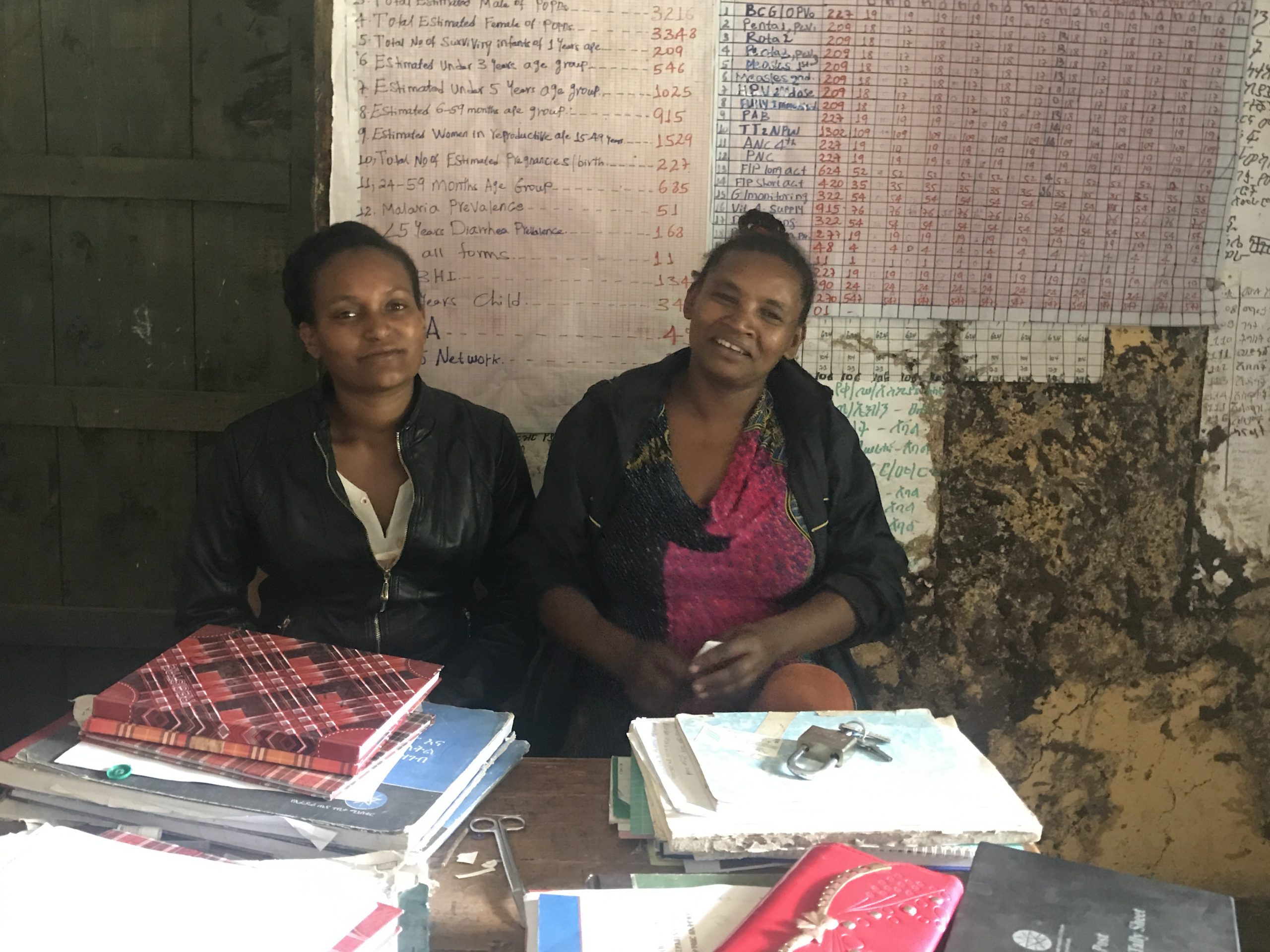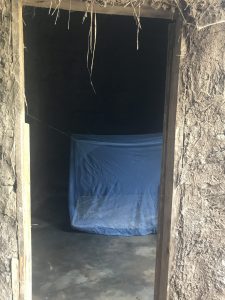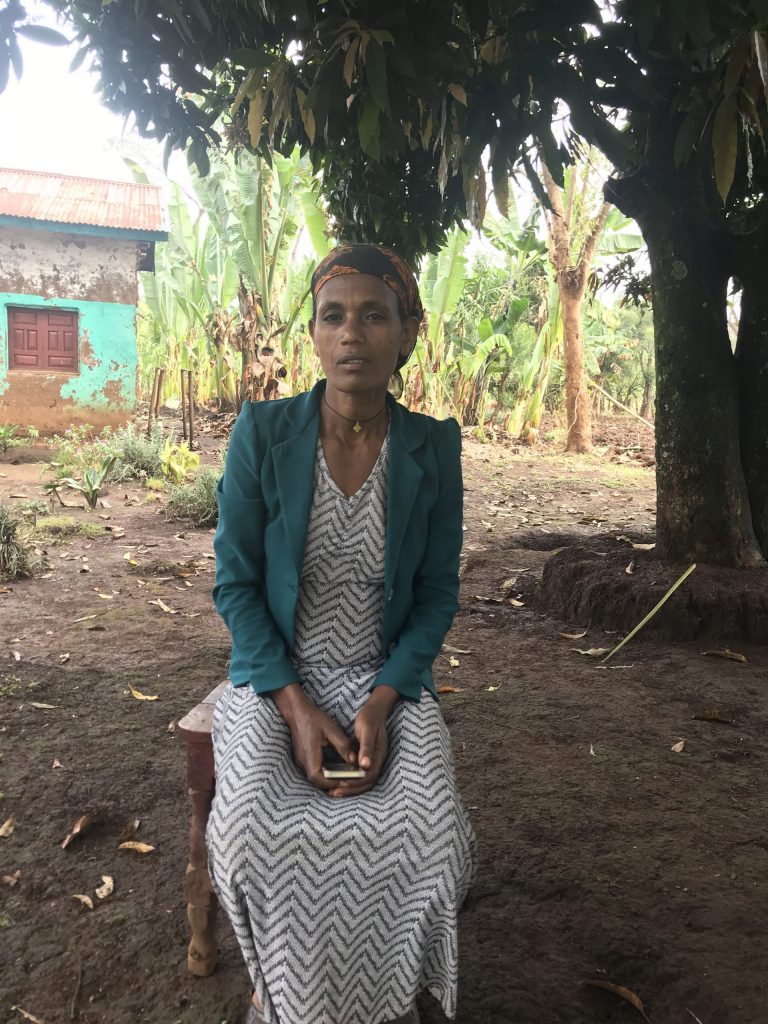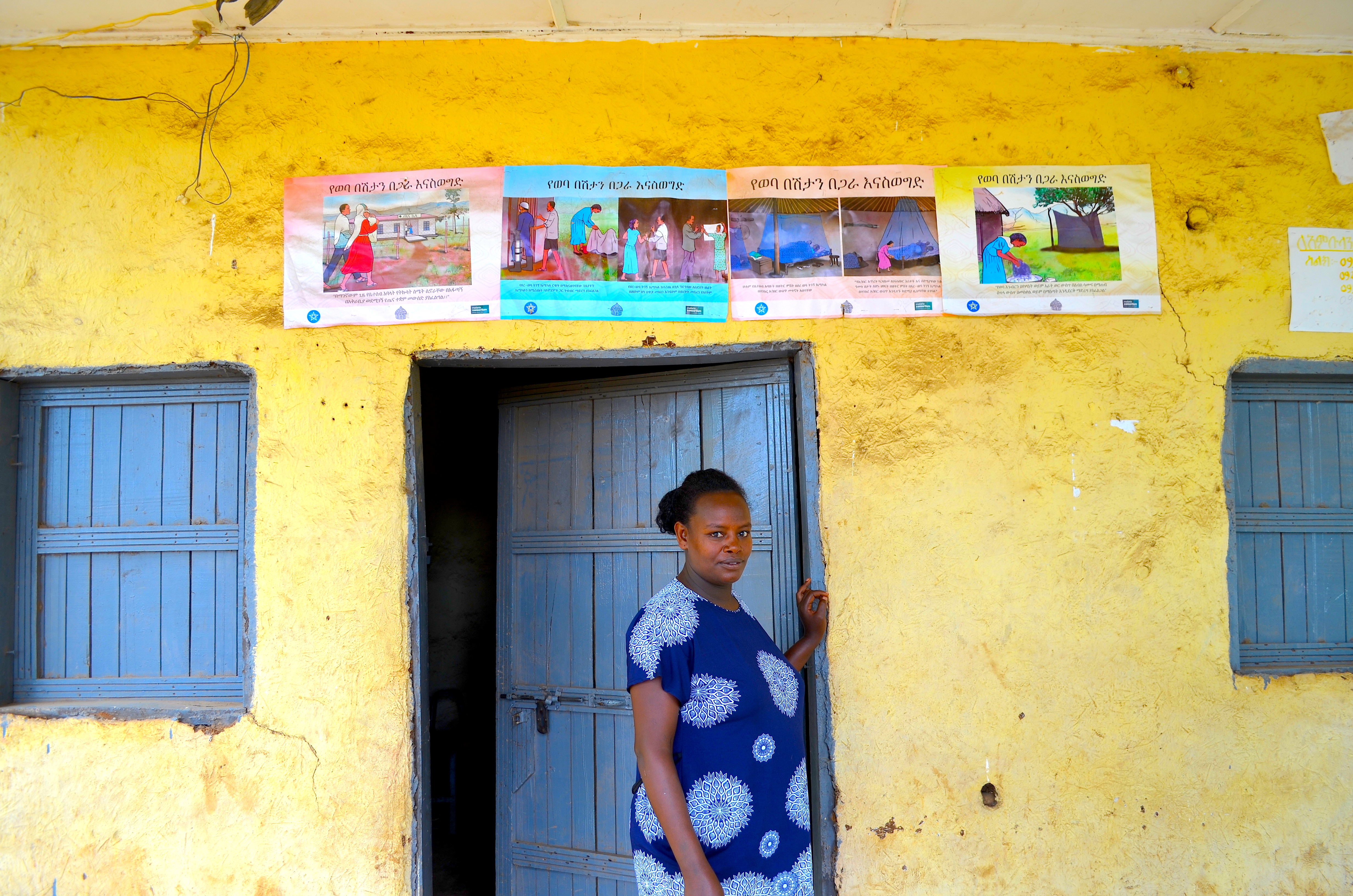March 8 marks International Women’s Day. At Malaria Consortium, we celebrate the women around the world who are delivering essential and life-saving health services in their communities.
Women play a transformative role across Africa and Asia in the fight against malaria, NTDs and other diseases, and are key to strengthening community-based primary healthcare. The WHO[1] recognises the potential of community health workers (CHWs) in reducing inequities in access to essential health services and the potential of female CHWs towards achieving greater gender equity within communities. If we are to achieve Sustainable Development Goals 3 and 5 at the end of this decade, we need to do more to help empower female CHWs and promote the role of women in healthcare.
On a recent visit to our James Percy Foundation-funded project in Ethiopia, I witnessed first-hand the impact that female CHWs and health-based volunteers have on their communities. I spoke with health extension workers (HEWs) and Health Development Army (HDA) volunteers about their role in preventing, controlling and treating malaria in their communities.
The vital role of HEWs
HEWs are community-based health workers, most of whom are women, who conduct home visits and provide primary health services at health posts.
Elfinesh Goa and Mebrat Haile are HEWs in the Shayamba Health Post in Damot Sore, Wolayta zone. They are in charge of implementing a health package comprising 18 services including malaria prevention, treatment and control; maternal and child health; family planning; immunisation; nutrition; and others.

They organise the distribution of long lasting insecticidal nets (LLINs) and the planning of indoor residual spraying in the different communities. They are also trained on breeding site detection. A significant amount of the area under their health post is a wetland, and they work alongside the community to conduct environmental management and control of the breeding sites to prevent mosquitoes from reproducing.
Thanks to Elfinesh and Mebrat’s work, the community knows about these preventive methods and cooperates with environmental management activities. “The community is now well aware of these preventive methods and the benefits of their contribution,” Elfinesh says. “They invest their energy and time to work with us.” All of these activities have contributed to a reduction of malaria cases in the district.

The Health Development Army
Zenebeech Wada is the HDA leader in her village. She plays a key role in educating the community on important health issues.
The HDA is a network of female volunteers, selected for their ‘role model’ status in the community. Working alongside HEWs, HDA volunteers encourage behaviour change by regularly visiting neighbours to teach them about global health initiatives and encouraging good health practices, such as going to a health post when signs of malaria are present.

Zenebeech advises mothers on how to prepare food for malnourished children and teaches them about immunisation. She also advises pregnant women on antenatal care and shows families how to keep their living areas clean to prevent the spread of communicable diseases.
Zenebeech is responsible for strengthening the link between the health system and the community. She told me how, every two weeks, she gathers members of the community into a meeting so that she can share the latest health updates – and she feeds back any information from the community to the health facility.
Zenebeech also plays a crucial role in the prevention and control of malaria at the village level: among other activities, she visits every household and makes sure LLINs are hung properly and also checks for breeding sites. If there are any breeding sites, she takes care of them in collaboration with the villagers by conducting environmental management activities. She also reports suspected malaria cases to health facilities and encourages villagers to seek early treatment if they develop symptoms of malaria.
By delivering critical services to their communities, these women play a crucial role in preventing, controlling and treating malaria, and saving lives. They enact positive changes in their communities by breaking barriers to accessibility and empowering both men and women in their communities to take control of their health and make long-lasting changes.
These women are paving the way for greater gender equality in the health workforce and beyond. At Malaria Consortium, we will continue to advocate and innovate to achieve greater representation and empowerment of women.
[1] WHO guideline on health policy and system support to optimize community health worker programmes
Click here to read about our project in Ethiopia
